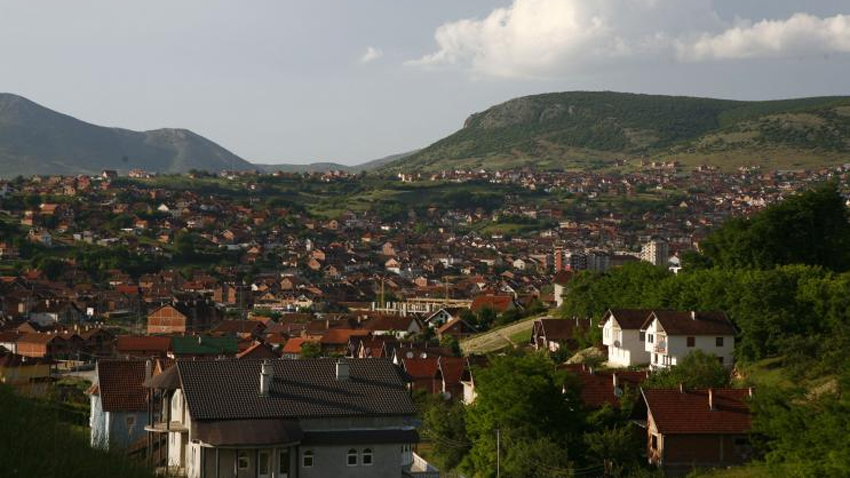When one has done a good job, it is imperative to tell others about it. This was what scientists from the Macedonian Scientific Institutedid after their return from the Republic of Kosovo, where they met with Bulgarians living there. The occasion for the visit was signing of a Memorandum of Cooperation with the Albanology Institute of Pristinain the spheres of activity of the two institutions - history, ethnology, culture, folklore, language. The Macedonian Scientific Instituteis a Bulgarian scientific organization established in 1923 in Sofia to study the geographic area of Macedonia. During the communist regime it was closed and his work resumed in 1990. Currently it has more than 80 associates from different scientific fields. Dr. Alexander Grebenarov, Director of the Macedonian Scientific Institute, explained the interest in working with the Institute in Pristina with the immediate historical connection of Bulgaria with the Kosovo lands:
"At the time of the First and the Second Bulgarian Empire, Kosovo was within the borders of medieval Bulgaria. Later, in 1916-1918, parts of Kosovo were again part of the Bulgarian state. After 1941, parts of Kosovo were once again included in the borders of the Bulgarian state, justlike Macedonia, Aegean Thrace and Dobrudja. In Kosovo Albanians are predominant, but the ethnic composition has been changing very dynamically over the centuries,"Dr. Alexander Grebenarov said.
The signing of the cooperation document between the two institutes became a reason for visiting Bulgarian compatriots living on the territory of Kosovo. Scientific grounds that helpdefining inhabitants of these areas as Bulgarians, give their language. Prof. Lucia Antonovasays that in the regions of Gora and Zhupa, as well as in some settlements in other regions, Bulgarian dialects are often spoken.
"It is amazing that, despite the vicissitudes of history, these dialects in southern Kosovo in Prizren are preserved to this day, even though people there had been taught exclusively Serbian,” Professor Antonovasays, adding that "most typical is the preservation of Bulgarian morphology."
Professor Antonova added that there were many toponyms of Bulgarian origin in these areas. She gave an example with the town of Rahovec, which is known as a place where Bulgarians live and where the family name Bulgari is frequent. For a few years now, in southern Kosovo,Bulgarian language courses have been organized, as there are many youngsters who want to learn Bulgarianand study in Bulgarian universities.

"Along with the signing of the memorandum between the two institutes, we had the opportunity to hold several political meetings," MP and member of the Macedonian Scientific Institute,KrasimirBogdanov says. “The authorities of the Republic of Kosovo have a positive attitude towards the Republic of Bulgaria and I think this is an opportunity for fruitful future cooperation. One of the most important tasks for me during this visit was the contact with people who identify themselves as Bulgarians. We met with representatives of 2 of the Bulgarian organizations that exist there.”
Dr. Anton Panchev, an expert in Albanology, commented on the possibilities of recognizing a Bulgarian community in the Republic of Kosovo. According to him, in case of a possible change of the Constitution of Kosovo, more ethnic groups could be added in it. The population census in Kosovo in 2011 showed that in the municipalities of Prizren and Dragash, where Bulgarians are concentrated, the number of people who marked the option “other” answering the question of ethnicity is ten times larger than in other Kosovo municipalities. Bulgarians in Kosovo are in a difficult economic and social situation and they are also subjected to pressure from foreign propaganda, which makes Bulgaria's support particularly necessary.
English: Alexander Markov
Summer in Bulgaria is an exciting time, not only for tourists. June and July are intense months for young people finishing secondary school and about to take the next step in their lives by choosing a university and a career path. In recent years,..
Colourful, ethereal, and subtle, butterflies are everywhere around us – day and night, in the city and in the countryside. However, zoologists warn that their butterfly dance has become increasingly rare in recent years in European countries , including..
The consulates of a country abroad are usually seen simply as the place where citizens go when they need assistance—whether to obtain documents or resolve problems that arise during their stay in a foreign country or in the event of a natural disaster...
Today, Bulgarian society is largely unaware of the existence of the Bulgarian community in Albania and Kosovo, or of their activities. The book Bulgarian..
The Bulgarian folk dance group Bulgaria , which is based in central England, came second at an international dance festival in Wales with 93 points. The..
Lectures in the Bulgarian language, as well as seminars on translation, discussions about new trends in contemporary Bulgarian literature and culture,..

+359 2 9336 661
